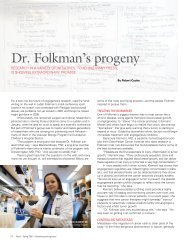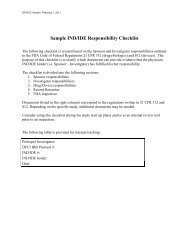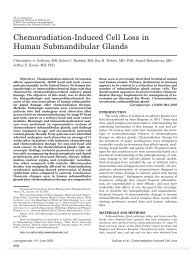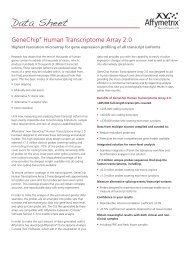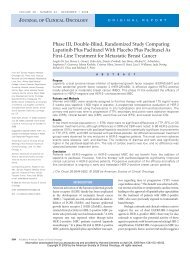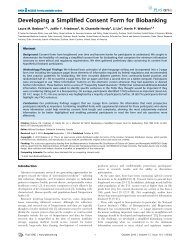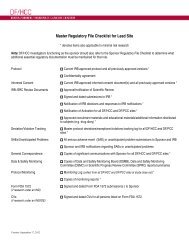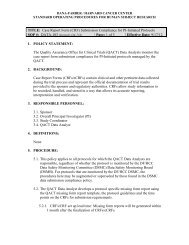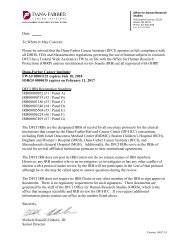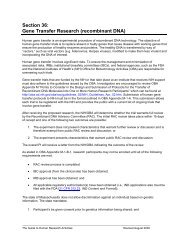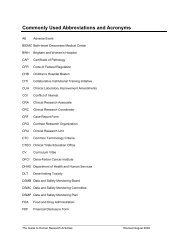Scientific Presentations Summer 2009 - Dana-Farber/Harvard ...
Scientific Presentations Summer 2009 - Dana-Farber/Harvard ...
Scientific Presentations Summer 2009 - Dana-Farber/Harvard ...
Create successful ePaper yourself
Turn your PDF publications into a flip-book with our unique Google optimized e-Paper software.
The Potential Role of Pituitary Tumor Transforming Gene 1 in<br />
Breast Cancer Development and Progression<br />
Bhaumika Shah<br />
Mentor: Towia Libermann, PhD<br />
Beth Israel Deaconess Medical Center<br />
Breast cancer is the most common cause of cancer in women and the second most<br />
common cause of cancer death in women in the U.S. While Pituitary Tumor-Transforming<br />
Gene 1 (PTTG1) has been recognized as an oncogene in the context of<br />
several types of tumors and a single nucleotide polymorphism in the PTTG1 gene<br />
has been linked to breast cancer development, no further studies into the potential<br />
role of PTTG1 in breast cancer have been pursued. Our preliminary analysis of<br />
genomic data sets link PTTG1 overexpression to recurrence and poor outcome in<br />
breast cancer patients and provide the basis for our innovative study that PTTG1<br />
is a novel breast cancer oncogene that plays an essential role in breast cancer development,<br />
progression and aggressiveness. We analyzed a variety of publicly available<br />
breast cancer microarray datasets for correlation between high expression of PTTG1<br />
and survival. Kaplan Meier curve analysis demonstrated that high PTTG1 expression<br />
strongly correlated with poor survival. The purpose of this study is to determine the<br />
potential role of PTTG1 in breast cancer development and progression as it relates to<br />
poor outcome. The potential biological relevance of the PTTG1 gene in breast cancer<br />
will be assessed by evaluating its mRNA (real time PCR) and protein expression levels<br />
(Western Blot) in breast cancer tissue and cell lines. We will also verify if PTTG1 promotes<br />
breast cancer survival or if the blockage of PTTG1 gene expression can induce<br />
cell death in breast cancer cells through RNA interference. The preliminary results<br />
display that the PTTG1 is upregulated at both mRNA and protein levels in breast<br />
cancer cell lines. For mRNA levels, about 60% of breast cancer tissue samples were<br />
upregulated from the PTTG1. There were high expression levels for both the PTTG1<br />
mRNA and protein levels in the MDA453 cell line. siRNA will be introduced into<br />
these breast cancer cell lines to verify the effect of PTTG1 blockage on breast cancer<br />
proliferation and apoptosis. We anticipate that PTTG1 overexpression is required for<br />
breast cancer progression and metastasis.



